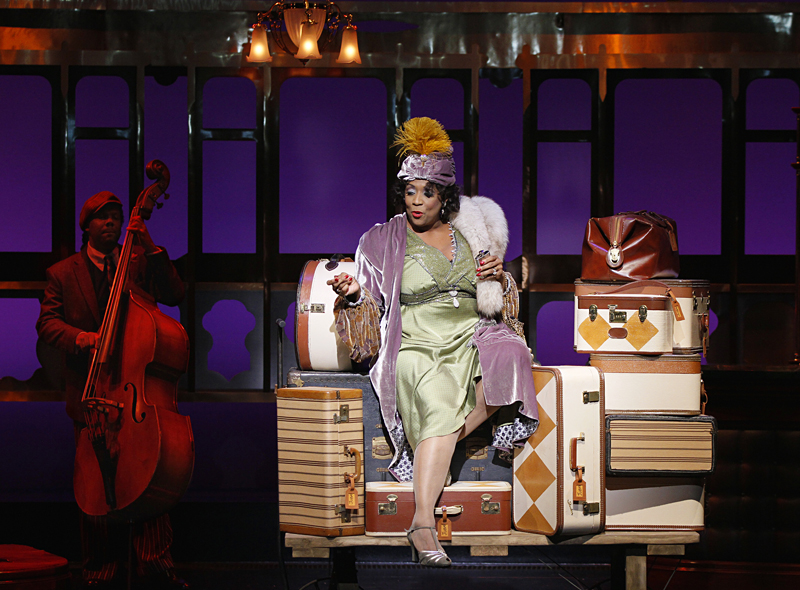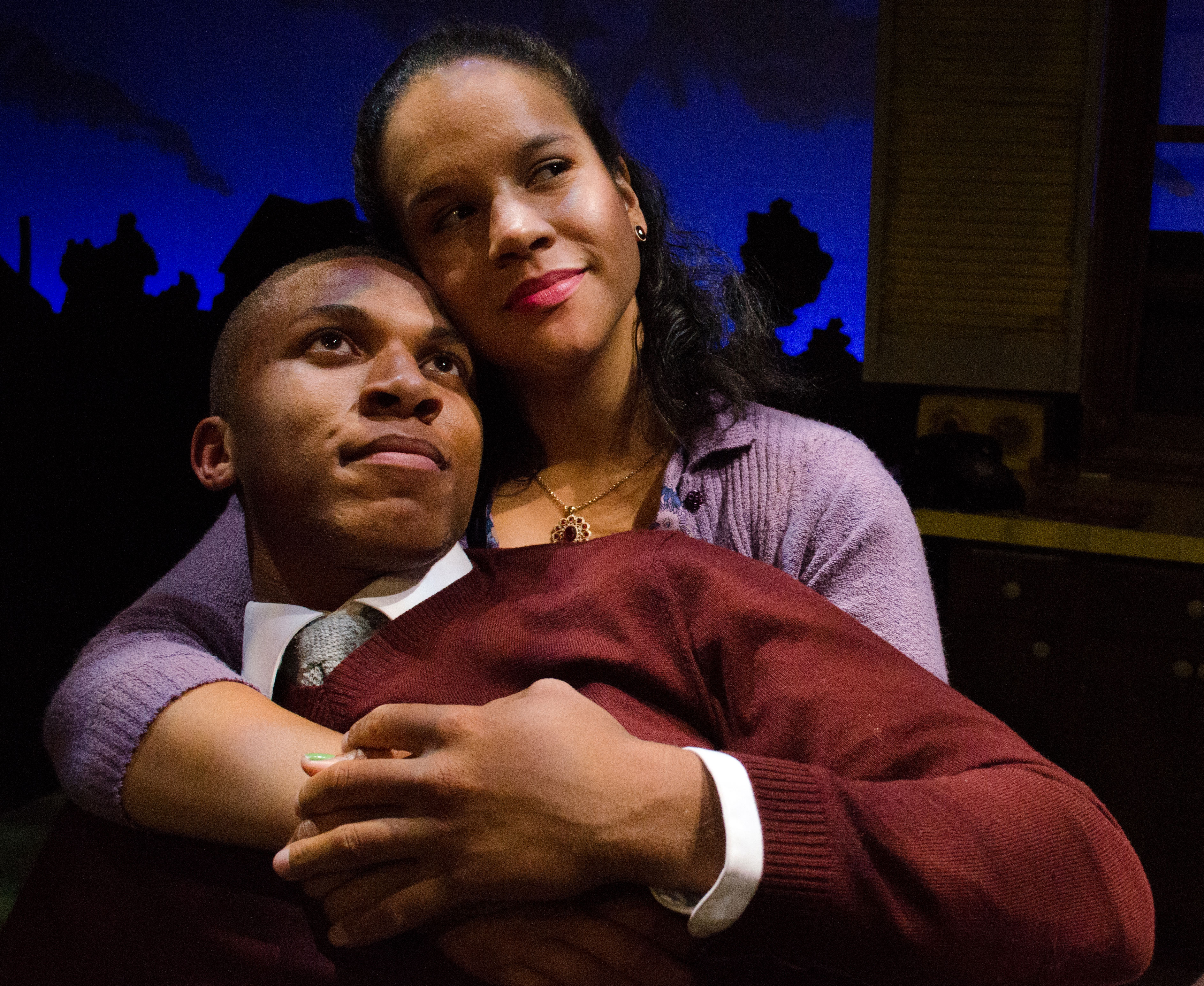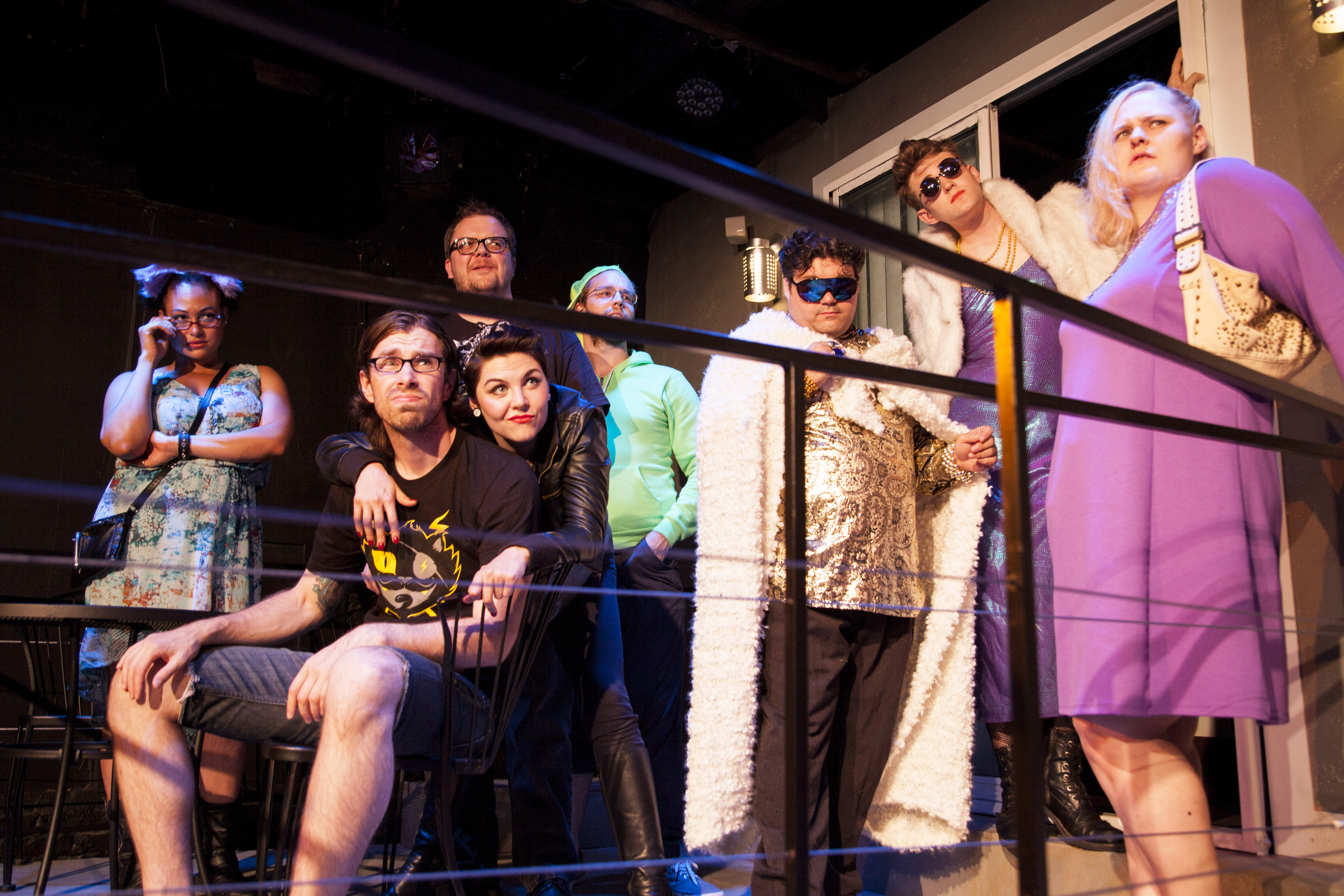With a presidential election fast approaching, the Depression-set Pullman Porter Blues provides an ideal meditation on how far down the tracks we’ve come in dealing with race and class. FDR’s America may have been very different in 1937, but for Seattle playwright Cheryl L. West, the nation’s route to equality was pretty much the same then as now: more often improvised than planned.
West sets three generations of porters on the Panama Limited from Chicago to New Orleans; four decades after emancipation, with slavery a living memory, her characters are clearly intended as archetypes of their time. The three men of the Sykes family exemplify how blacks first embraced, then chafed at, the harsh working conditions of their day.
This particular journey has some surprises for the trio. No sooner does Grandpa Monroe (Larry Marshall) start training his grandson Cephas (Warner Miller) for the life of a porter than they discover at the last minute that the boy’s father Sylvester (Cleavant Derricks) has picked up the run, too. And union organizer Sylvester has no idea his son is considering a life other than becoming the family’s first doctor. Enter Sister Juba (E. Faye Butler), a blues singer whose volcanic sexual appetites are matched only by her skills as a songstress. Like a chess master, West then adds a white stowaway girl (blues-harp whiz Emily Chisholm) and a bigoted conductor (Richard Ziman); they’re instrumental figures in her drama—neither completely cardboard, nor fully three-dimensional.
While not a musical per se, Pullman Porter Blues uses a live stage band to back its cast members in a baker’s-dozen spirituals, blues numbers, and work songs, several of which date back to the slave era. These tunes, forged in the fires of oppression, are rock-solid and performed with consummate skill by the sublime cast, crisply directed by Lisa Peterson. (The onstage musical director is Jmichael.)
Stitching together a story incorporating such songs defines daring, because not a line in any of them doesn’t resonate with integrity. You either meet that challenge or you’re left at the station, baggage in hand. Everyone involved in this world premiere accepts that responsibility. It’s one hell of an enthralling ride toward equality that, West suggests, is far from over.








